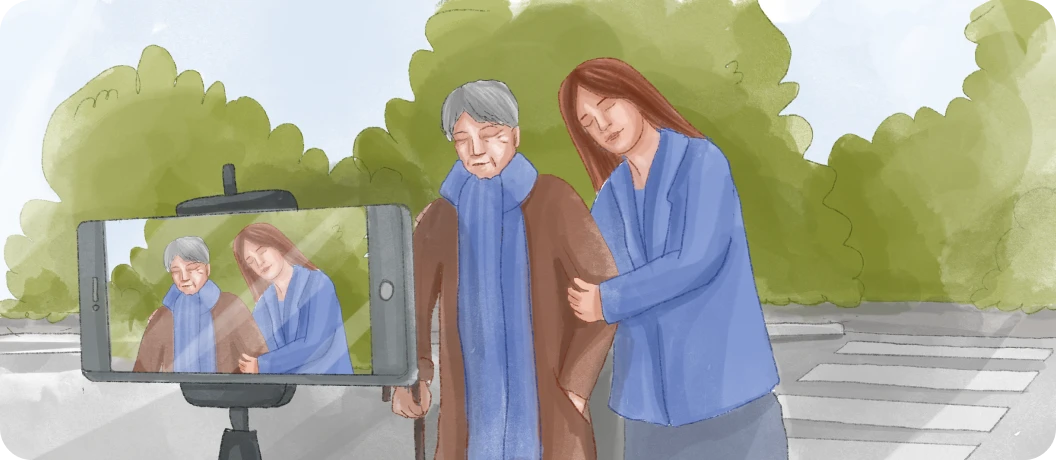Do you believe you’re the only who can fix things? Do you see yourself as a moral compass for others? These thoughts are common for altruistic narcissist.
Typically, altruistic narcissism is a lesser-known and more complex type of narcissism. An altruistic narcissist may disguise their selfishness with acts of kindness, making it difficult for others to recognize their true intentions.
Narcissism disguised as altruism can be especially difficult to spot because the person’s behavior may appear genuinely benevolent.
However, recognizing altruistic narcissist traits in yourself or others is crucial to changing destructive patterns and setting healthy boundaries. Otherwise, it can lead to manipulation or emotional exploitation in relationships.
What Is an Altruistic Narcissist?
Altruistic narcissists hide behind a facade of generosity and selflessness. They are especially empathetic, generous, and caring, and demand that others treat them accordingly.
Signs of altruistic narcissism may be present from the start, but they are subtle. At first, you may find yourself admiring their generosity and all they do for other people.
Gradually, you begin to notice behavior that does not match their public image, and you question your perceptions. Once you get to know them, their kind facade quickly disappears, and you may sense a hostile and aggressive behavior.
Like all types of narcissists, altruistic narcissists believe that they are superior to others and that everyone around them is incompetent and slow. They may become visibly impatient when others do not meet their impossible demands or do not give them the recognition and applause they are entitled to.
Their “altruism” is not about helping, but about increasing the control they have. They may never apologize and constantly blame others for mistakes and poor results. If questioned, they become aggressive and accuse others of being ungrateful for “everything I do.”
Altruistic Narcissist Traits
While people with altruistic narcissism may seem generous and kind, they may show several common narcissist traits:
1. They “Save” Others to Control
In relationships, altruistic narcissists may help their partners or family members to gain control or maintain a sense of superiority.
They may position themselves as the “savior” and expect others to feel indebted to them.
By acting as the “savior,” people with altruistic narcissist traits may take control over others, using their help to make others feel like they owe them.
As an example, altruistic narcissist might offer to help their partner with tasks like paying bills or managing finances. However, they make it clear that they expect something in return, like gratitude or loyalty.
After helping, they might say things like, “You wouldn’t have gotten this far without me,” or “You really need to appreciate everything I’ve done for you.”
This makes the partner feel like they owe the person with benevolent narcissism. Thus, the altruistic narcissist sets up an emotional debt to control or manipulate their partner later.
Have you ever had someone use their help as a way to control you?
2. They Use Help to Create Dependency
Another example of an altruistic narcissist’s power play strategy is creating emotional dependency.
For instance, an altruistic narcissistic parent might insist on “helping” their adult child with making decisions about their career or organizing their personal life even when their help isn’t needed.
They may say, “You’re lucky I’m helping you with this. You wouldn’t know what to do without me.”
Eventually, their child may start to believe they can’t handle things without their parent’s help. This, in turn, creates a power imbalance where the person with this type of narcissism holds more control in the relationship.
Over time, in their adulthood, this child may struggle with decision-making or themes of learned helplessness. That’s common for daughters of narcissistic mothers as constant criticism and lack of validation from a narcissistic mom can chip away at their confidence and sense of self-worth.

3. They Believe They’re the Only Ones Who Can Fix Things
The benevolent narcissist may believe they can uniquely solve others’ problems, even when others don’t ask for or need help.
Commonly, their need to “fix” others is tied to their desire to be indispensable or exceptional. They may believe that without their intervention, others would be helpless.
For instance, a friend with altruistic narcissistic tendencies might try to make decisions for you, believing they know what’s best. If you’re considering moving to a new city or accepting a new job, they may constantly push their ideas.
They may be giving unsolicited advice like, “You should definitely take that job. It’s the best opportunity you’ll get. Trust me, I know what I’m talking about.”
Even if you’re uncertain or want to make the decision on your own, they refuse to respect your boundaries and act as though their solution is the only right one.
Moreover, when someone turns down their help, an altruistic narcissist might react with anger or hurt. They may view the refusal to accept their help as a rejection of their very identity as a benevolent person.
At the same time, when you don’t follow their recommendations, they might make you feel like you’re not handling things well or that you’re too stubborn to accept their wisdom.
They may say, “I’m just trying to help you, but if you don’t listen, things will only get worse.”
4. They “Show-off” Altruism
An altruistic narcissist may “show off” their kindness to gain attention and feel better about themselves. They might subtly or directly hint at their actions, sharing stories of their generosity or sacrifice.
To illustrate, they may donate to charity but make sure everyone knows about it. Or, they may volunteer in highly visible ways, such as in an event where their name will be announced.
We asked Nicole Arzt, LMFT, how childhood trauma can make a person with altruistic narcissism show off altruism.
Childhood trauma can predispose someone to altruistic narcissism. If someone learns they seek validation and acceptance from giving to others, they will continue to feel inclined to engage in those behaviors. However, it’s not so much about caring for others or making the world a better place- it’s more about fulfilling individual desires for control, power, and a sense of worth.
5. They May Be Judgmental
Although they may appear generous, altruistic narcissists may have a harsh, judgmental side. They might criticize others for not doing enough or not being as morally upright as they are.
For example, they might belittle a friend’s choices or actions. A person with benevolent narcissism may claim others are not as virtuous or generous as they are, even though the altruistic narcissist’s acts of generosity may be self-serving.
A person with benevolent narcissism might say things like, “I can’t believe you don’t donate to this cause; it’s the right thing to do,” or “I’m always helping others—why can’t you do the same?”
Generally, altruistic narcissists may believe they are morally superior to others because of their “good deeds.”
They may view their charitable actions as proof of their higher moral standing. That’s why they believe they may criticize or look down on others who don’t contribute in the same way.
Nicole Arzt, a licensed marriage and family therapist, explained how people with altruistic narcissism can stop judging others and overcome the urge to compete in altruism.
It’s important to remember that morality isn’t objective. Everyone has different values and backgrounds; you do not inherently make all the “right” choices. Mindfulness and deepening acceptance toward others is the first step to letting go of judgment. The next time you find yourself getting judgmental, ask yourself, “What is this judgment really about right now?”
Curious if you or someone you know may have altruistic narcissist traits? Take our Altruistic Narcissism Test to get insights.
Altruistic Narcissist Test
1. Do you often feel like you’re the only one who understands what others need or how to help them?
A) No, I believe others are just as capable of understanding and helping.
B) Sometimes, I feel I have a better understanding, but I try not to impose it.
C) Yes, I often feel like I’m the only one who knows what’s best for others.
2. Do you feel uncomfortable when others help you, especially if they are giving more than you are?
A) No, I’m fine with accepting help from others.
B) Sometimes, I feel guilty if I’m not able to reciprocate in the same way.
C) Yes, I feel threatened or uncomfortable when others help me more than I help them.
3. Do you see yourself as a “hero” or “savior” in your relationships or community?
A) No, I see myself as just a regular person who helps when I can.
B) Sometimes, I feel proud of the ways I help, but I don’t think of myself as a hero.
C) Yes, I often think of myself as someone who saves others or makes their lives easier.
4. When you give or do something for someone, do you secretly hope that they will “owe” you or will be obligated to return the favor?
A) No, I help others without expecting anything in return.
B) Sometimes, I hope they will feel grateful and want to help me back, but it’s not a requirement.
C) Yes, I expect that they will owe me or will return the favor in some way.
5. Do you sometimes feel that you “deserve” more than others because of your acts of generosity?
A) No, I don’t feel entitled to more than anyone else.
B) Sometimes, I think my generosity should be acknowledged, but I try to avoid feeling entitled.
C) Yes, I feel like I deserve more recognition or better treatment because of how much I give to others.
Scoring your results:
- Mostly A’s:
You likely don’t show altruistic narcissist traits. You act out of kindness and a genuine desire to help others without seeking praise or recognition. You likely focus on what’s best for others, expecting nothing in return. - Mostly B’s:
You might have some tendencies that align with altruistic narcissism, but they’re not dominant. You may seek some recognition or validation for your acts of kindness, but you’re also capable of selflessly helping others. - Mostly C’s:
You might show traits of an altruistic narcissist. You may drive your actions more by a desire for admiration, approval, or a sense of moral superiority than by true kindness. You may use your generosity to control others and expect praise for every good deed. It’s important to reflect on your motivations and how they affect your relationships and well-being.
Altruistic Narcissist: How Does a Person Become Like This?
Unlike overt narcissist who openly seek attention, altruistic narcissists may seem humble or selfless. However, their humility is often just a way to look morally superior and earn approval.
In reality, they may lack true empathy and care more about boosting their own ego than genuinely helping others.
An altruistic narcissist typically develops this pattern due to a combination of childhood trauma and deep-seated emotional needs. Here’s how it can happen:
- Emotional neglect: Often, people with altruistic narcissism grow up feeling unseen or unimportant. As a result, they may engage in “good deeds” to gain admiration or moral superiority. Thus, they may hope these actions will fill their emotional void.
- Conditional self-worth: Altruistic narcissists may tie their sense of value to how others perceive them. This can lead them to over-focus on their image and the validation they get from helping others. This trait is also common for a child of narcissistic parents, who can learn the pattern that they must earn love through actions.
- Lack of empathy: While people with altruistic narcissist traits may act generously, their actions are often driven by the need to feel better about themselves rather than true concern for others’ well-being.
- Urge to control: People with altruistic narcissism may use their “helping” behavior to manipulate or control others, positioning themselves as morally superior and deserving of admiration.
If you think your desire to help others might sometimes come from a need for approval, childhood trauma could be influencing your behavior. Take a test to understand how your past may affect your actions today.
Types of Altruistic Narcissists
Altruistic narcissists can show different types of behaviors and motivations to gain admiration, power, or control. Here are some common types:
- The Martyr: This type puts themselves in situations of sacrifice, constantly emphasizing their personal suffering for the benefit of others. At the same time, they expect admiration for their “selflessness” and can feel resentful when others don’t reciprocate.
- The Savior: People with this type of altruistic narcissism seeks out people to “rescue” and positions themselves as the only one who can help. They may also exaggerate their role or making others feel indebted.
- The Humanitarian: This type uses their involvement in charity work as a way to gain social status or admiration. They usually prioritize their image over genuine compassion.
- The Selfless Performer: These altruistic narcissists constantly engage in acts of kindness or charity, but only when there’s an audience to witness and praise their actions.
- The Hero: This type of person with benevolent narcissism needs people to see them as the central figure in any situation. They may often take credit for a group’s success to boost their reputation.
- The Moral High-Roller: People with this type of altruistic narcissism position themselves as morally superior. They may judge others for not being as “good” or as selfless, using their own deeds as proof of their moral excellence.
- The Empathizer: These people may appear highly empathetic. However, they usually care about others to gain validation and glorify themselves rather than out of genuine compassion.
How to Deal with an Altruistic Narcissist
Dealing with people with altruistic narcissist traits can be tough, as their selfless acts often come with hidden motives. Here are some strategies for healthy communication:
- Set boundaries: Clearly define your limits and be firm in maintaining them. Especially when an altruistic narcissist’s “help” becomes controlling or manipulative.
- Avoid praise: Don’t feed into their need for constant admiration or validation. Acknowledge their actions in a factual way rather than overemphasizing their greatness. For example, say, “I appreciate your help with…” instead of “You’re so amazing for doing this.” Try to compliment the act itself rather than the person behind it.
- Don’t accept guilt trips: Recognize when an altruistic narcissist is trying to manipulate you into feeling guilty for not appreciating their help or for not being “grateful enough.”
- Limit emotional dependence: Don’t rely on people with altruistic narcissism for emotional support. Their empathy may be conditional, so turn to others for genuine care.
- Observe patterns: Notice if their “altruistic” actions always have strings attached, and be mindful of the underlying motives.
Sources
Disclaimer
This article is for general informative and self-discovery purposes only. It should not replace expert guidance from professionals.
Any action you take in response to the information in this article, whether directly or indirectly, is solely your responsibility and is done at your own risk. Breeze content team and its mental health experts disclaim any liability, loss, or risk, personal, professional, or otherwise, which may result from the use and/or application of any content.
Always consult your doctor or other certified health practitioner with any medical questions or concerns
Breeze articles exclusively cite trusted sources, such as academic research institutions and medical associations, including research and studies from PubMed, ResearchGate, or similar databases. Examine our subject-matter editors and editorial process to see how we verify facts and maintain the accuracy, reliability, and trustworthiness of our material.
Was this article helpful?





